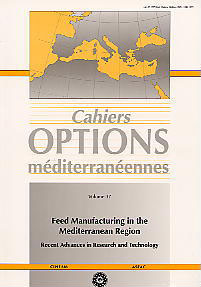| Article précédent | p. 77-82 | Article suivant |
Benefits and microbiological risks of feed additive antibiotics
Antimicrobial growth promoters have become widely used in most EU countries and elsewhere. They act on micro-organisms within the intestine to increase growth and efficiency through permitting full use of dietary nutrients. The question of resulting antimicrobial resistance has been assessed at various points over the years. Such assessments have generally concluded that there were no demonstrable hazards to human health. However, concern has recently focused on resistance in Enterococcus faecium which sporadically causes disease in debilitated or immunosuppressed patients. In these patients, glycopeptides such as vancomycin are important, and the related feed additive compound avoparcin was suspended within the EU in April 1997, following evidence of resistance among isolates from animals, and fear that there might be a link with resistance in man.
- [ Afficher ]
- [ Télécharger ]
- [ Exporter la citation ]
Vous pouvez télécharger la citation au format :
- [ Imprimer ]
-
Mots-clés
ADDITIF AUX ALIMENTS DES ANIMAUX, ANTIBIOTIQUE, PRODUCTION ANIMALE, PROMOTEUR DE CROISSANCE ANIMALE, RISQUE, UNION EUROPEENNECiter cet article
Bywater R.J. Benefits and microbiological risks of feed additive antibiotics. In : Brufau J. (ed.), Tacon A. (ed.). Feed manufacturing in the Mediterranean region: Recent advances in research and technology. Zaragoza : CIHEAM, 1999. p. 77-82. (Cahiers Options Méditerranéennes; n. 37). 2. Conference of Feed Manufacturers of the Mediterranean, 1998/03/25-27, Reus (Spain). http://om.ciheam.org/om/pdf/c37/99600008.pdf



